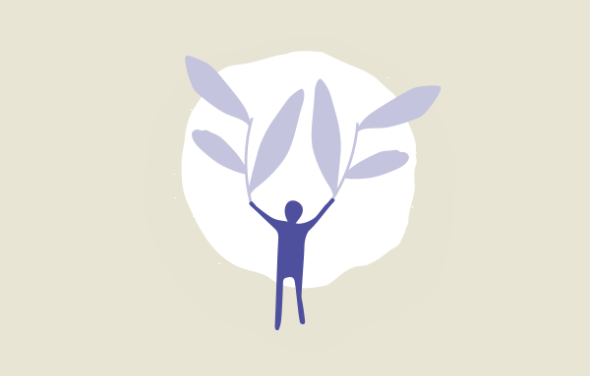I was fortunate to receive an Iolanthe award to help towards a Masters in Health Research. Midwifery – like all healthcare disciplines – should be based on the best available evidence of what is effective and acceptable for women, birthing people and families.
During my midwifery training, I was fascinated (and at times horrified) by the fact that some research has more of an impact on practice than others, and that some practice isn’t actually based on much evidence at all.
I read research as a student midwife that really spoke to me, answering questions that felt important to both women and midwives. I read research that that made me question accepted norms, making me think differently about how or why I practice the way I do.
Like many midwives, I found research to be very daunting and confusing. It felt very inaccessible.
When I decided to embark on a Masters in research, I really wanted to complete a course that had a significant focus on taught modules. My hope was that this would help me to understand how to read and apply research, and to be able to understand how research is actually conducted.
The taught modules on my course included quantitative and qualitative research methods, systematic reviewing, research ethics and even a research placement. In terms of my goal to better understand research, this course was absolutely the right choice for me.
Over time, my focus for my dissertation shifted from remote and rural midwifery to trauma informed care, which is another area that I am passionate about. Not (re)traumatising women should be the absolute minimum standard for maternity services. Yet more than that, trauma informed maternity care has the potential to be empowering and healing for women and families.
An issue that I identified in practice was that often, intimate examinations are not performed in a trauma informed way. After much literature searching, this became my dissertation focus.
During the course of my studies, I dealt with some personal and health issues. In the middle of the dissertation, I had to make the very difficult decision to finish my studies there as I needed to focus on my health and wellbeing.
My Iolanthe award had been used to pay for some of the taught modules, which had been central to fulfilling my goal of learning more about the research process. It also meant that I was able to graduate with a Postgraduate Diploma in Health Research. I also learned a huge amount in the time I worked with my dissertation supervisor.
Using what I learned, I have altered my own practice. The way that I discuss and perform intimate examinations has become more trauma informed.
I also take opportunities to discuss trauma informed intimate examinations with students and colleagues whenever I can. Since I’ve made these changes, I have had some really positive feedback from women. This further convinced me that this research area is important and could have positive benefits for women and families.
For this reason, my journey with this is not over. I absolutely plan to revisit this research idea and may use it as a proposal for doctorate level study, or apply for funding to carry it out, when the time is right for me.






